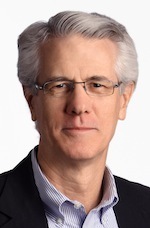NSF official, UW emeritus Fleming Crim to speak at Wisconsin Science Festival
National Science Foundation Chief Operating Officer and UW–Madison professor emeritus Fleming Crim will give a talk on Friday, Oct. 16 as a part of the Wisconsin Science Festival’s speaker series.
Crim’s 2 p.m. presentation, titled “NSF Broader Impacts: Fostering Connections to Expand the Societal Benefits of Basic Research,” will shed light on why and how broader impacts are so crucial to NSF’s funding priorities and on how the Wisconsin Idea fits in with these goals.
“Broader impacts” is an NSF term for research outcomes that go beyond advancing a field and focus on benefits the research brings to society more generally. This may include bringing technology to the marketplace, forming companies, training, community outreach, K-12 engagement, improving STEM education, and increasing opportunities for underrepresented students.
Crim has a distinguished record of accomplishments in research and education. He spent 40 years in the Department of Chemistry at UW–Madison, where he is now the John E. Willard and Hilldale Professor Emeritus. From 2013 to 2017, Crim served as NSF’s assistant director for Mathematical and Physical Sciences, and he is now its chief operating officer. He has lectured around the world and published more than 150 papers.
“We are thrilled to be able to feature Dr. Fleming Crim to talk about the National Science Foundation’s emphasis on broader impacts in assessing the value of research proposals,” says Laura Heisler, director of outreach for the Morgridge Institute for Research and the Wisconsin Alumni Research Foundation. “The Wisconsin Idea is the quintessential broader impacts statement, and Dr. Crim’s return to Wisconsin, albeit virtually, for this talk gives our campus an opportunity to hear more about how our values at UW–Madison align with so many priorities at NSF.”
Crim’s original scientific work and teaching have earned many awards. These include the Plyler Prize of the American Physical Society, the Langmuir Award of the American Chemical Society, and the Centenary Medal of the Royal Society of Chemistry (London). He received his bachelor’s degree from Southwestern University and his doctorate from Cornell University.
Crim is a fellow of the American Physical Society, American Chemical Society, and the American Association for the Advancement of Science. He is a member of both the National Academy of Sciences and the American Academy of Arts and Sciences.

